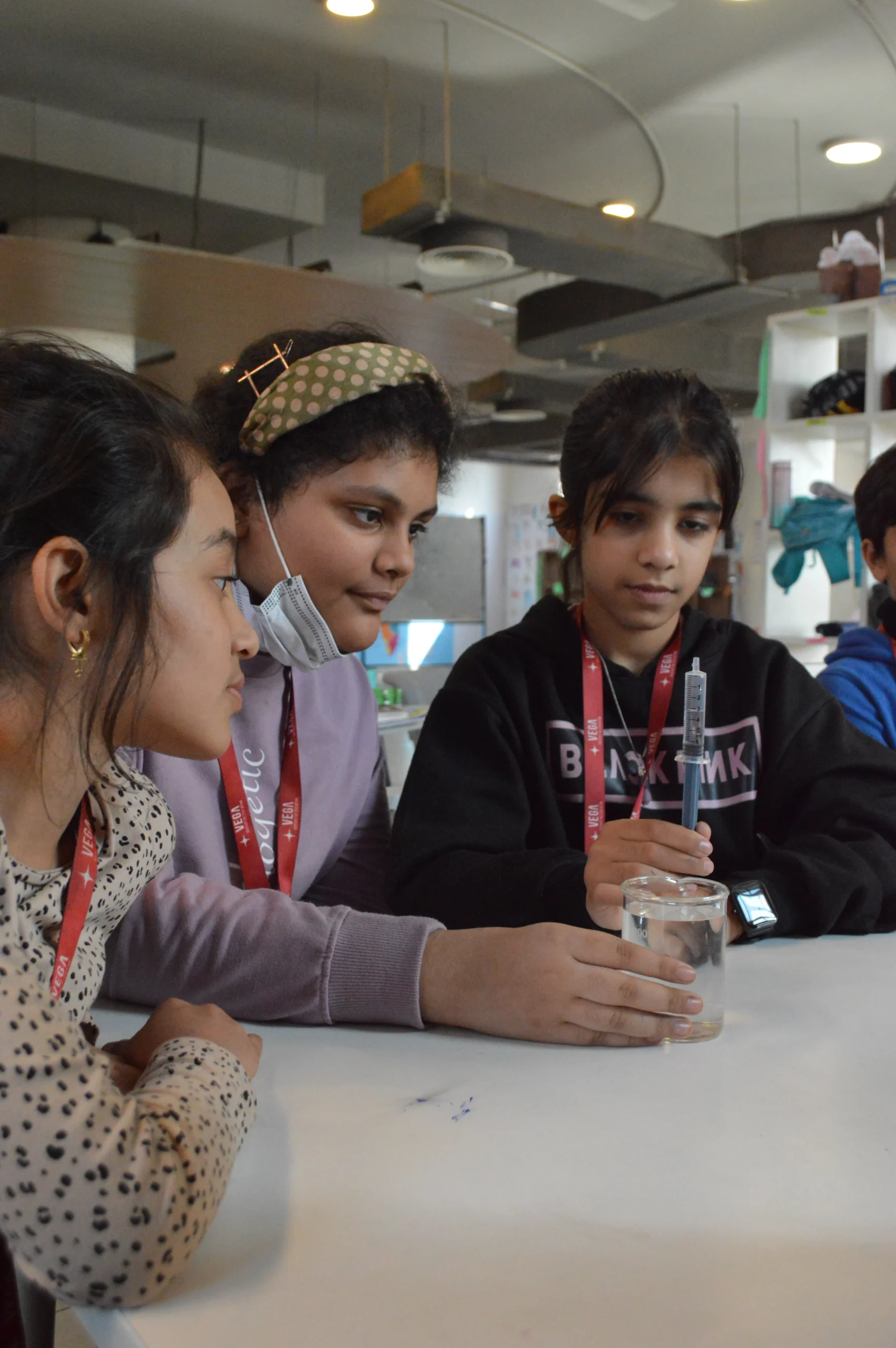Have you ever noticed how we remember things we do better than things we just read? The smell of a science experiment gone wrong, the thrill of building something that actually works, or the pride after a group presentation — those moments stick. That’s exactly what Vega Schools believe in — learning that doesn’t fade after exams, but becomes learning that lasts.
At Vega Schools, classrooms are buzzing with exploration. Instead of memorizing pages from a book, students dive into real-world problems and experiences. Whether it’s designing a model ecosystem or creating a plan to reduce plastic waste, learners are encouraged to ask questions, make mistakes, and discover answers through action. It’s education that feels alive — where every project, discussion, or field visit leaves a mark that stays long after the lesson ends.
The idea of experiential learning isn’t new. Educational thinker David Kolb described it as learning through experience — a process where students do, reflect, think, and apply (Kolb, 1984). But it’s schools like Vega Schools that have turned this concept into reality. Their classrooms are like mini think-tanks, where curiosity drives learning and teachers act as guides instead of lecturers.

And the science behind it is fascinating. Studies by the National Training Laboratories show that people remember only about 5% of what they hear in a lecture but up to 75% of what they practice by doing (National Training Laboratories, 2019). That’s why Vega Schools’ approach — full of projects, teamwork, and exploration — helps students actually remember what they learn.
What makes Vega Schools’ model even more powerful is its Problem-Based Learning (PBL) method. Each project begins with a real-world challenge — something relatable, something that matters. Learners brainstorm, research, and experiment until they find solutions that make sense. In the process, they develop empathy, creativity, and confidence. It’s not just about getting the right answers but about learning how to think, question, and connect ideas.
Even India’s National Education Policy (NEP) 2020) encourages this kind of hands-on, application-based learning. The NCERT too highlights that when students learn through direct experience, their understanding becomes deeper and longer lasting (NCERT, 2020). Vega Schools embody this beautifully — turning classrooms into spaces of discovery where knowledge isn’t memorized, it’s lived.
Learning That Lasts: How Experiential Learning at Vega Schools Sparks Real Understanding isn’t just a catchy phrase — it’s what happens every day at Vega Schools. When students touch, build, discuss, and explore, learning becomes a part of who they are. It’s joyful, real, and, most importantly, it lasts.
References
- Kolb, D. A. (1984). Experiential Learning: Experience as the Source of Learning and Development. Prentice Hall.
- National Training Laboratories Institute for Applied Behavioral Science. (2019). Learning Pyramid.
- Vega Schools. (2023). Experiential Learning and Problem-Based Education. https://www.vega.edu.in
- NCERT. (2020). Learning Outcomes at the Elementary Stage. National Council of Educational Research and Training, New Delhi.
- Ministry of Education, Government of India. (2020). National Education Policy 2020.
Vega Schools offers holistic education to children in Delhi NCR and is rated among the top Schools in Gurgaon. Its modern infrastructure, facilities, and experienced teachers are a big asset to the learning & development of students, be it for Nursery, Primary or Senior children making Vega Schools the best schools in Gurgaon. For information about admission please visit the Vega Schools campuses in Sector 48 and Sector 76 Gurugram.
